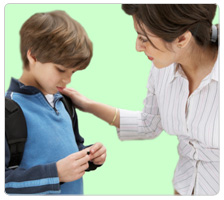 I seldom watch or read the news so I often don’t know what’s happening out in the world. There is no ‘good’ news. It’s all about death and violence and who did what to whom. TV News Producers will tell you ‘if it bleeds it leads.’ This only serves to lower our vibration and keep us from realizing our own conscious potential.
I seldom watch or read the news so I often don’t know what’s happening out in the world. There is no ‘good’ news. It’s all about death and violence and who did what to whom. TV News Producers will tell you ‘if it bleeds it leads.’ This only serves to lower our vibration and keep us from realizing our own conscious potential.
Friday morning I was looking through a list of tweets from an organization that helps journalists find experts and I saw one that looked odd. It said ‘XYZ seeks experts re: #Aurora #shooting and social #media’ For whatever reason, I clicked on it and read about the shootings at the movie theater in Aurora, Colorado. I felt sick. This, oddly, has always been a fear of mine. When I go into the movie theater and sit down I run through a list in my head; where are the exits, how would I protect Caidin, would it be safer to crawl or run? Crazy, but it is true. It’s what I do.
I had no intention of speaking to Caidin about this. Why potentially give him the same fear I carry? But unfortunately he overheard his dad and me talking (kids will ALWAYS seem to hear what you don’t want them to hear. A lowered voice or a whisper is an invitation to turn on their super sensitive hearing.)
He asked what we were talking about and we do our best to not lie to him or dismiss his questions, so we discussed it with him. He had questions like ‘why would someone do that?’ ‘Did he kill people?’ ‘Is he dead?’
We answered the questions we could and there were some questions we couldn’t answer. We hypothetically talked about what might drive someone to this place-drugs, mental illness – and it gave us an opportunity to talk to Caidin about the real world concern that one can lose oneself and their empathy by playing video games that desensitize their connection to humanity and their grasp on reality. (That’s what we believe.) It let me reinforce why I don’t let him play shooter games at home or with friends.
The way my husband and I speak with Caidin has evolved over eight years of parenting consciously. Caidin understands certain aspects of life and death because of our approach.
So how do we talk about death and terrorism and violence with our children? In truth the conversation has to be derived from your own beliefs, but also needs to include a few important elements.
Always remember that you know your child better than anyone, so if something doesn’t resonate, leave it out, or consider how you might be able to adapt the information to suit the temperament and awareness of your own child.
This article or any other article is meant to give you something to think about, not to override your own information. If Caidin hadn’t overheard us talking, I would not have discussed this tragedy with him. But since he asked, we did. I believe avoiding or ignoring questions only leaves children feeling more fearful and more uncertain. It also has the potential to give your child the notion that you are not the people to talk to about worries, fears, concerns and real world activity.
I always put it in the this context: do I want Caidin learning and hearing about life from me, or from friends or worse, piecing information together what he overhears? I would much prefer that he comes to me or his dad with the tough questions, however difficult they are to talk about.
Here are some things to keep in mind:
Turn off any possible distractions – television, radio, cellphones. Dedicate time and space to this conversation.
Speak on a level that your child can understand. Consider what words you are using and the speed at which you are speaking.
Do your best to speak from a place of neutrality, offering what you know and being honest about what you don’t know. Try to help your child see the bigger picture. What pushes people to do these things? What life lessons are held in these situations?
You don’t have to have all the answers.
Make this a two-sided conversation. Let your child ask questions and interject. Don’t just talk at them.
Check in with your child to see how they are actually hearing what you are saying. Don’t ramble on and on and then just end the conversation.
You need to address your child’s sense of fear and vulnerability by indicating that this was an unusual situation.
You cannot lie to your child. Every time you choose to lie to your child, you teach them to override their own inner knowing. Children know when something is wrong, when something ‘feels’ bad. By saying it was just a game or no one got hurt, they somehow, somewhere, know that isn’t the truth. But you, their parent, are saying it is the truth which causes its own conflict and confusion until they are forced to override what they can ‘feel’ is true.
Help them connect to their emotions. Sometimes children can’t pinpoint what they are feeling. Help them determine if they are angry or sad or scared.
When the conversation is over, tell them you love them, hug them and let them know they can ask you more questions if they need to.
Be prepared to answer more questions later on. Children take a while to process things and they process in small bits. They may ask the most pointed question. Listen to a small amount of what you are saying and then start talking about something completely unrelated or start playing with a toy. This is how they process.
I do believe that every experience holds an opportunity to learn, grow and heal. How we handle these most difficult times and experiences can further develop your positive, supportive role in your child’s life.
We send our thoughts and prayers to the people affected by this tragedy.
© 2012 Christine Agro
Have questions about your child or need support? Christine offers private readings as well as on-line support at The Consicous Mom’s Guide
Christine Agro is a spiritual teacher, clairvoyant, naturopath, Master Herbalist, conscious mom and author of 50 Ways to Live Life Consciously as well as of The Conscious Living Wisdom Cards (Special Moms’ Edition). Christine is founder of The Conscious Mom’s Guide , a membership site where she helps support you on your own journey of living life consciously and on your journey of being a Conscious parent. You can also join Christine on Facebook. To contact Christine, invite her to speak or to schedule an appointment with her please email her.

